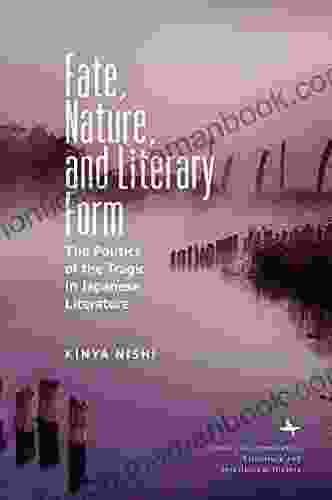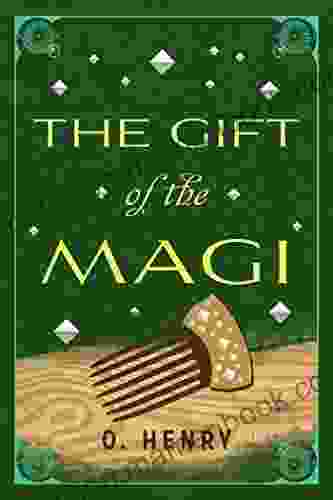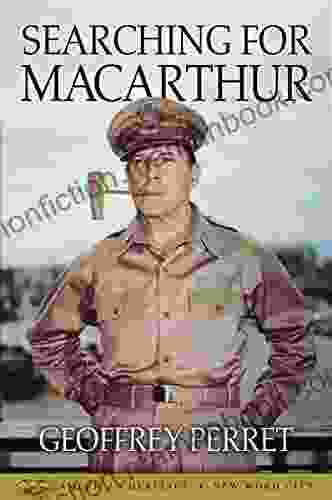Fate, Nature, and Literary Form: An Exploration of the Interplay between Determinism and Free Will in Literature

Fate and free will are two of the most enduring and debated concepts in human history. They represent the fundamental tension between our desire for control over our lives and the recognition that there are forces beyond our control that shape our destiny.
5 out of 5
| Language | : | English |
| File size | : | 1775 KB |
| Text-to-Speech | : | Enabled |
| Screen Reader | : | Supported |
| Enhanced typesetting | : | Enabled |
| Word Wise | : | Enabled |
| Print length | : | 215 pages |
This tension has been a central theme in literature for centuries, and it has been explored in a wide variety of ways. Some authors have used their work to argue that fate is ultimately inescapable, while others have emphasized the power of free will to overcome even the most difficult circumstances.
In this article, we will explore the complex relationship between fate, nature, and literary form. We will examine how authors use literary devices to convey their perspectives on the role of determinism and free will in human experience. We will also consider how the literary form itself can influence how we interpret these concepts.
Fate
Fate is the idea that there is a predetermined plan for our lives, and that we have no choice but to follow it. This concept is often associated with the ancient Greek concept of Moira, or the Fates, who were three goddesses who controlled the threads of human destiny.
In literature, fate is often represented as an external force that acts upon characters, shaping their actions and determining their ultimate destiny. For example, in the Greek tragedy Oedipus Rex, the protagonist is cursed by the gods to kill his father and marry his mother. No matter what Oedipus does, he cannot escape his fate, and the play ends with him blinded and exiled.
However, fate is not always seen as a negative force. In some stories, it is seen as a positive force that guides characters towards their ultimate destiny. For example, in the novel The Catcher in the Rye, the protagonist Holden Caulfield is guided by his fate to meet the people who will help him to find his true self.
Nature
Nature is another powerful force that shapes our lives. It can be seen as a source of both beauty and danger, and it can have a profound impact on our physical and mental health.
In literature, nature is often used to symbolize the forces of fate. For example, in the novel Moby-Dick, the whale represents the uncontrollable forces of nature that humans must contend with. The novel ends with the whale destroying the whaling ship and killing everyone on board, symbolizing the futility of human efforts to control the natural world.
However, nature can also be seen as a source of hope and renewal. In the poem "Ode to a Nightingale," the speaker finds solace in the beauty of nature after experiencing a period of darkness and despair. The poem ends with the speaker reaffirming his faith in the power of nature to heal and restore.
Literary Form
The literary form can also influence how we interpret the relationship between fate, nature, and free will. For example, a tragedy is a literary form that is characterized by a protagonist who is doomed to a tragic end. The protagonist's actions are often determined by fate, and there is little that they can do to escape their destiny.
In contrast, a comedy is a literary form that is characterized by a protagonist who overcomes obstacles and achieves a happy ending. The protagonist's actions are often determined by free will, and they are able to shape their own destiny.
The literary form can also be used to explore the relationship between fate and nature. For example, a novel can be used to explore the complex ways in which human actions are shaped by both fate and nature. A play can be used to explore the tension between the individual and society, and the role of fate in shaping human relationships.
The relationship between fate, nature, and literary form is a complex and ever-evolving one. Authors have used literary devices to explore these concepts in a wide variety of ways, and there is no easy answer to the question of which force ultimately determines our destiny.
However, by exploring the relationship between fate, nature, and literary form, we can gain a deeper understanding of the human condition and our place in the world. We can also see how literature can be used to help us to make sense of our own lives and to find hope in even the most difficult of circumstances.
5 out of 5
| Language | : | English |
| File size | : | 1775 KB |
| Text-to-Speech | : | Enabled |
| Screen Reader | : | Supported |
| Enhanced typesetting | : | Enabled |
| Word Wise | : | Enabled |
| Print length | : | 215 pages |
Do you want to contribute by writing guest posts on this blog?
Please contact us and send us a resume of previous articles that you have written.
 Top Book
Top Book Novel
Novel Fiction
Fiction Nonfiction
Nonfiction Literature
Literature Paperback
Paperback Hardcover
Hardcover E-book
E-book Audiobook
Audiobook Bestseller
Bestseller Classic
Classic Mystery
Mystery Thriller
Thriller Romance
Romance Fantasy
Fantasy Science Fiction
Science Fiction Biography
Biography Memoir
Memoir Autobiography
Autobiography Poetry
Poetry Drama
Drama Historical Fiction
Historical Fiction Self-help
Self-help Young Adult
Young Adult Childrens Books
Childrens Books Graphic Novel
Graphic Novel Anthology
Anthology Series
Series Encyclopedia
Encyclopedia Reference
Reference Guidebook
Guidebook Textbook
Textbook Workbook
Workbook Journal
Journal Diary
Diary Manuscript
Manuscript Folio
Folio Pulp Fiction
Pulp Fiction Short Stories
Short Stories Fairy Tales
Fairy Tales Fables
Fables Mythology
Mythology Philosophy
Philosophy Religion
Religion Spirituality
Spirituality Essays
Essays Critique
Critique Commentary
Commentary Glossary
Glossary Bibliography
Bibliography Index
Index Table of Contents
Table of Contents Preface
Preface Introduction
Introduction Foreword
Foreword Afterword
Afterword Appendices
Appendices Annotations
Annotations Footnotes
Footnotes Epilogue
Epilogue Prologue
Prologue Jane K Brown
Jane K Brown Dancing Dolphin Patterns
Dancing Dolphin Patterns Heather Graham
Heather Graham Lola Allen
Lola Allen Michael Greger
Michael Greger Osip Mandelstam
Osip Mandelstam Rubina Ramesh
Rubina Ramesh Marina Viola
Marina Viola Eileen Moynahan
Eileen Moynahan Daniel Donoghue
Daniel Donoghue Kevin T Patton
Kevin T Patton Kimberly Owen
Kimberly Owen Mayank Mishra
Mayank Mishra Jimmy Moncrief
Jimmy Moncrief Kevin Dawe
Kevin Dawe Julianne Bosch
Julianne Bosch Gillian Clarke
Gillian Clarke Odd Dot
Odd Dot Peter Frase
Peter Frase Jessika Klide
Jessika Klide
Light bulbAdvertise smarter! Our strategic ad space ensures maximum exposure. Reserve your spot today!

 Douglas FosterThe Ultimate Guide to Unlocking Android and iOS Secrets: Tips, Tricks, and...
Douglas FosterThe Ultimate Guide to Unlocking Android and iOS Secrets: Tips, Tricks, and...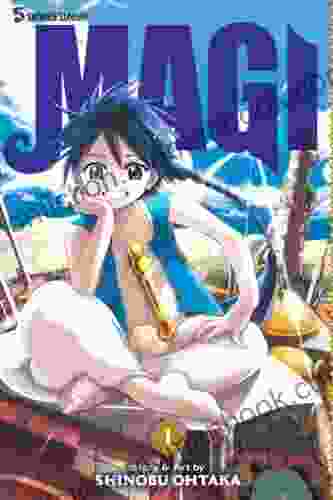
 Natsume SōsekiMagi: The Labyrinth of Magic Vol. 2: A Comprehensive Review of the Fantasy...
Natsume SōsekiMagi: The Labyrinth of Magic Vol. 2: A Comprehensive Review of the Fantasy... Edgar HayesFollow ·8.4k
Edgar HayesFollow ·8.4k Carl WalkerFollow ·19.7k
Carl WalkerFollow ·19.7k John MiltonFollow ·17.2k
John MiltonFollow ·17.2k Holden BellFollow ·3.8k
Holden BellFollow ·3.8k Dale MitchellFollow ·13.1k
Dale MitchellFollow ·13.1k Roy BellFollow ·6.4k
Roy BellFollow ·6.4k Brent FosterFollow ·8.2k
Brent FosterFollow ·8.2k Evan SimmonsFollow ·18.7k
Evan SimmonsFollow ·18.7k
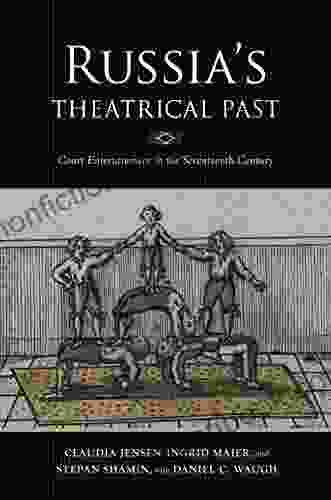
 Steve Carter
Steve CarterUnveiling the Rich Theatrical Tapestry of Russia: A...
Origins and Early...
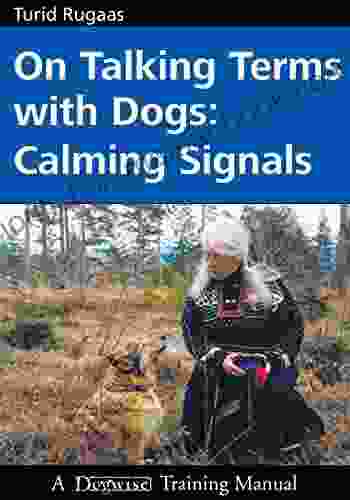
 Frank Butler
Frank ButlerOn Talking Terms With Dogs: Calming Signals and the...
For centuries, dogs have...

 Leo Tolstoy
Leo TolstoyThe Inside Guide to Applying and Succeeding in...
Applying to...
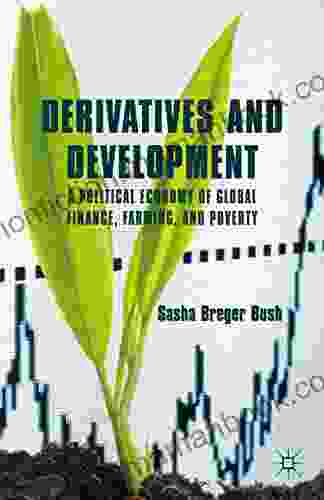
 Cole Powell
Cole PowellThe Political Economy of Global Finance, Farming and...
The global...
5 out of 5
| Language | : | English |
| File size | : | 1775 KB |
| Text-to-Speech | : | Enabled |
| Screen Reader | : | Supported |
| Enhanced typesetting | : | Enabled |
| Word Wise | : | Enabled |
| Print length | : | 215 pages |


